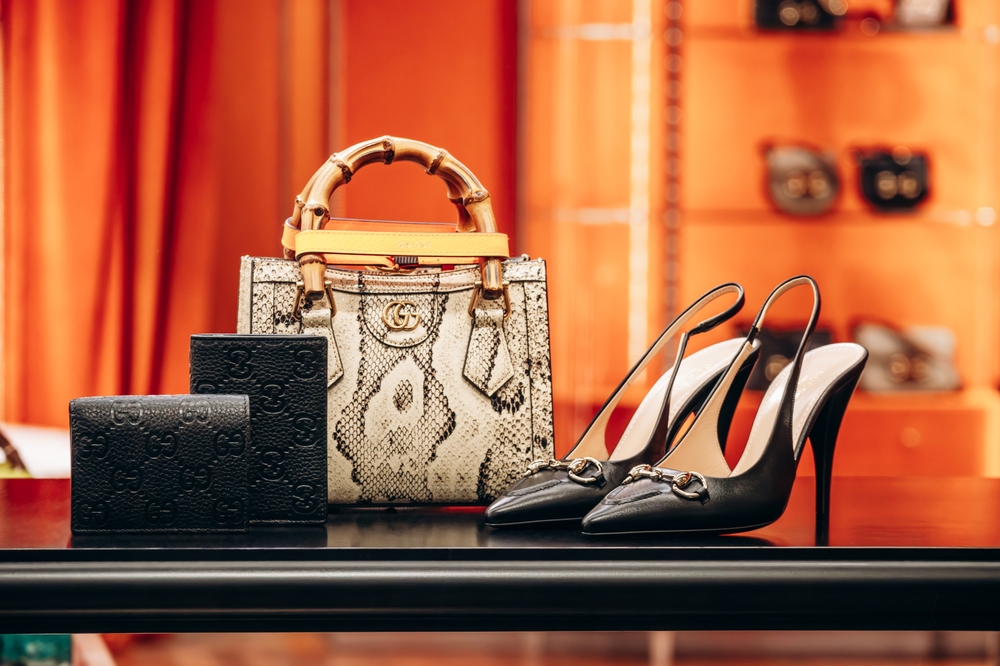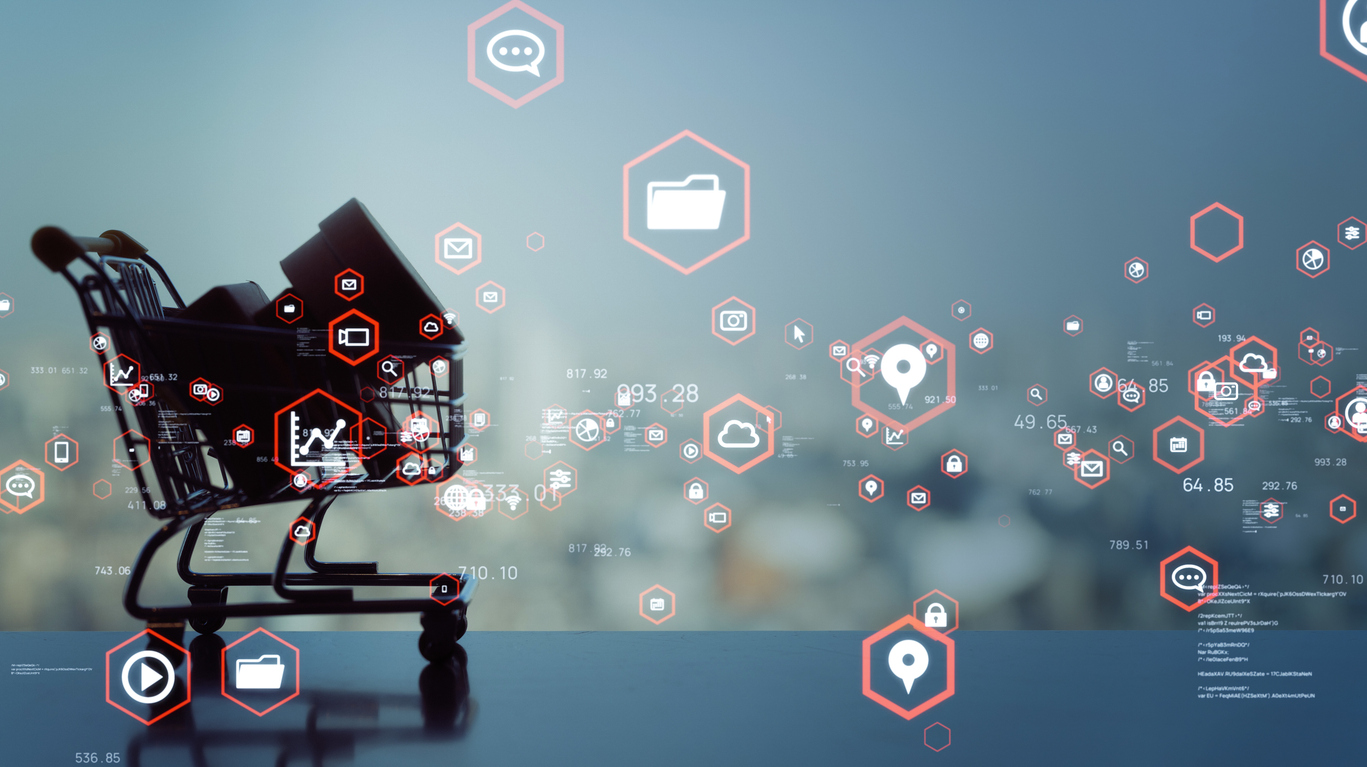The Secret Weapon in Luxury's Next Evolution? Your Data, Decoded.
Luxury fashion is entering an unprecedented era—one not solely defined by the meticulous artistry of ateliers and skilled artisans, but increasingly by sophisticated algorithms, intricate data pipelines, and intelligent systems. Far from being a futuristic add-on, artificial intelligence (AI) has rapidly become a foundational force across the entire luxury fashion ecosystem, powering everything from predictive design and hyper-personalization to robust counterfeit detection.
At the intersection of cutting-edge technology and unparalleled exclusivity, AI is helping top fashion houses do what they’ve always done best: anticipate consumer desire before it's consciously articulated, and deliver it with unmatched precision and speed. But in the AI age, this deep intuition is now powerfully augmented by machine learning, rich behavioral data, and intelligent automation, redefining competitive advantage in a market where every detail matters. This stands in stark contrast to mass-market brands, where data often drives sheer volume and efficiency, rather than elevated exclusivity.
What Makes AI in Luxury Fashion Uniquely Strategic?
In the rarefied world of luxury fashion, AI refers to the strategic deployment of machine learning algorithms, advanced computer vision, natural language processing, and predictive analytics to enhance every stage of the fashion lifecycle. Unlike fast fashion—which primarily leverages AI for operational speed and volume—luxury brands employ AI with a distinct purpose: to amplify craftsmanship, deepen personalization, and rigorously preserve brand exclusivity and heritage.
AI is not replacing the creative director or diluting the intrinsic value of a brand's identity. Instead, it acts as an invisible, intelligent curator—a powerful layer that discerns evolving consumer sentiment, dramatically helps reduce waste, enables surgical precision in marketing, and powers truly elite digital experiences. This allows luxury brands to uphold their legacy and artisanal traditions while operating with next-generation efficiency and foresight, directly contributing to their premium positioning and profitability.
AI’s Strategic Footprint: Where is it Reshaping the Industry?
AI’s transformative footprint in luxury fashion extends across several core areas, each offering significant business advantages and compelling returns on investment:
- Predictive Design & Trend Forecasting: Specialized tools like Heuritech and Edited leverage sophisticated computer vision and natural language processing to analyze millions of real-time social media images, global runway shows, cultural signals, and even micro-influencer content. For luxury houses, this means spotting nascent micro-trends months or even years before they become mainstream. AI helps brands design proactively, minimizing creative and financial risk by ensuring collections deeply resonate with future demand. This translates directly into more profitable collections, reduced unsold inventory, and faster time-to-market for high-demand items.
- Hyper-Personalized Client Experience: Luxury retailers are leveraging AI to dynamically adjust every client touchpoint. From personalizing Farfetch homepages with AI-driven product carousels to tailoring recommendations on Net-a-Porter based on granular Browse history and purchase behavior, AI curates bespoke online journeys. Louis Vuitton and Prada, for instance, utilize advanced AI-driven customer data platforms (CDPs) to unify client profiles, enabling tailored content, exclusive early access to collections, and even personalized styling advice via AI-powered chatbots or human stylists augmented with AI insights. This deep personalization reportedly leads to increased conversion rates and significantly higher client lifetime value.
- Inventory Intelligence & Waste Reduction: AI optimizes production runs based on meticulously projected demand, helping brands avoid costly overproduction—a common issue for legacy luxury houses grappling with unpredictable trends and global supply chains. By analyzing historical sales, external economic factors, and real-time market sentiment, AI allows for the creation of desirable scarcity with precision, protecting margins while simultaneously reducing environmental waste and preserving brand mystique. Brands like those within the LVMH Group are investing heavily in AI for supply chain optimization, utilizing predictive analytics to enhance efficiency, reduce lead times, and make more sustainable sourcing decisions, impacting both profit and brand reputation.
- Authentication & Anti-Counterfeit Measures: The relentless battle against counterfeits is crucial for protecting brand integrity, intellectual property, and revenue. AI-powered platforms like Entrupy can now detect fraudulent luxury items using microscopic image analysis and pattern recognition—far more accurately and consistently than the human eye. Brands like Cartier and Bulgari are integrating AI with blockchain technology (e.g., through the Aura Blockchain Consortium, founded by LVMH, Prada Group, Richemont, and OTB Group) to assign unique digital certificates to high-end products. This creates an immutable ledger for authenticity verification throughout an item's lifecycle, safeguarding brand value in the burgeoning resale market and reducing financial losses due to illicit goods.
Case Study: How Are Leading Luxury Brands Activating AI?
Gucci (Kering Group): Precision at Scale Gucci has emerged as one of the most tech-forward houses in luxury fashion, embracing AI across its operations:
- Client Personalization: Gucci uses AI systems trained on vast customer datasets to evaluate purchasing patterns, Browse habits, and individual style preferences. This enables AI-powered product recommendations across both digital and physical retail platforms. Their AI-powered chatbot handles a significant percentage of routine customer queries, freeing human stylists for high-value interactions and contributing to reported increased e-commerce conversion rates.
- Virtual Try-On Technology: Partnering with AR and AI developers (like Wannaby for virtual sneakers), Gucci offers interactive virtual try-on for sneakers, eyewear, and accessories. This blends machine learning with immersive e-commerce experiences, leading to reduced product returns and enhanced customer engagement.
- AI in Design Innovation: Gucci has strategically experimented with generative AI tools (e.g., custom models based on Google's TensorFlow or large image models like Midjourney for concept exploration) to assist in capsule collections and digital fashion drops. This accelerates the initial ideation phase, allowing designers to explore more possibilities and bring concepts to market faster.
- Sustainability via AI: By analyzing complex supply chain data and production models, Gucci uses AI to pinpoint inefficiencies, optimize material sourcing (e.g., for bio-fabricated leather or recycled textiles), and move closer to its ambitious sustainability goals. This contributes directly to cost savings and strengthens their Environmental, Social, and Governance (ESG) profile.

Balenciaga (Kering Group): Algorithmic Creativity Balenciaga has famously dabbled in AI-assisted creative processes, particularly for its viral digital fashion activations and physical runway shows. They've used generative AI tools like DALL-E 2 or proprietary counterparts to explore novel garment concepts from text prompts, accelerating design ideation and pushing aesthetic boundaries. This fusion of AI and human creativity allows for rapid prototyping of unconventional silhouettes and patterns that align with their avant-garde brand identity, creating buzz and driving engagement.
Burberry: Data-Driven Engagement & Optimization Burberry has utilized AI for enhanced customer understanding and operational efficiency. They employ AI models to predict key fashion trends and consumer behavior, informing collection planning and marketing strategies. Furthermore, their AI-powered chatbots offer personalized styling advice and product recommendations, extending the luxury service experience into the digital realm and improving customer satisfaction. Burberry has also integrated AI into its supply chain management to monitor and redistribute inventory based on real-time demand signals, significantly reducing markdowns and excess stock.
The Rise of Generative Design: How is AI Reshaping Couture's Canvas?
High-end fashion designers are now tapping into generative design platforms that use AI to suggest novel patterns, drapes, and silhouettes aligned with specific brand codes and archival aesthetics. These platforms don’t "create" fashion autonomously—they act as an unparalleled creative partner, dramatically expanding what's possible and accelerating the design process.
Tools resembling platforms like Fashwell or custom-trained large language models (LLMs) propose previously unimaginable design variations based on inputs like extensive archive collections, contemporary mood boards, and evolving customer profiles. The result? Designs that are simultaneously futuristic, brand-consistent, and highly efficient to conceptualize, allowing designers to focus on refinement and final execution.
Major luxury houses, including Balenciaga, Gucci, and Louis Vuitton, have all explored AI-assisted digital garments—particularly for lucrative fashion NFTs and metaverse activations. These virtual items are often designed algorithmically, then meticulously refined with luxury-grade finishing, perfectly marrying sophisticated code with high-end couture. This represents a significant new revenue stream and a way to engage digitally native luxury consumers, securing a foothold in emerging digital economies.
Luxury, Reprogrammed: The Future of Fashion Tech Investment
AI’s greatest impact in luxury isn't merely speed or cost savings—it's unprecedented control. Control over brand narrative, inventory optimization, precise customer journeys, and the strategic direction of design futures. In an industry where perception is paramount and exclusivity is power, AI provides luxury fashion houses with unparalleled tools to maintain mystique while delivering hyper-personalization at scale. This mirrors broader shifts across the high-end market, where luxury wellness and fashion brands alike are redefining sophistication through a mix of heritage and high-tech innovation.
As these technologies evolve, we’re entering a new phase of digital craftsmanship. Heritage houses once rooted solely in tradition are now operating as sophisticated fashion-tech hybrids—less like garment-makers, more like agile, data-driven cultural enterprises. The competitive landscape will increasingly favor those who can integrate AI seamlessly and intelligently across their entire value chain, securing their market position and driving long-term profitability.
Conclusion
Artificial intelligence is already reshaping luxury fashion behind the scenes—subtly, intelligently, and irrevocably. Whether anticipating macro trends, eliminating costly waste in the supply chain, enhancing intellectual property protection, or designing hyper-personalized client experiences, AI allows luxury brands to do what they’ve always done—just smarter, faster, and with greater precision. This strategic adoption ensures they remain at the pinnacle of exclusivity and profitability, widening the chasm between their operational sophistication and that of the general market.
As this invisible layer of intelligence expands, the luxury fashion of the future won't look like a sci-fi fantasy—it will look exactly how the algorithm predicted you'd want it to, delivered with effortless elegance.
Related: Lorenzo Bertelli: Architect of Prada’s Enduring Luxury Legacy
Related: Sofia Richie Grainge: The Unspoken Queen of Quiet Luxury













